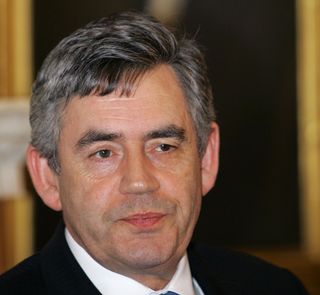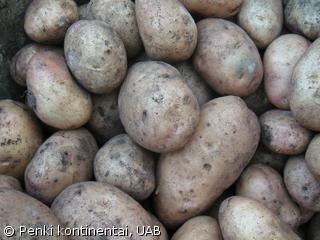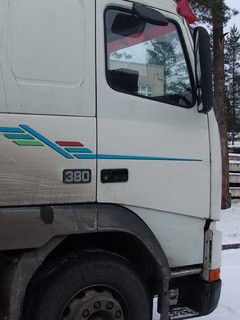Dragon Oil and Petronas to Yield Their Shares in Turkmen Projects to Russia's Zarubezhneft and Itera
Published:
19 October 2003 y., Sunday
Western companies have been contemplating whether to accept or reject Ashkhabat's offers to develop the hydrocarbon reserves on the Turkmen shelf of the Caspian Sea. Turkmenistan has insisted that its 32 blocks totaling over 70 thousand square kilometers contain 16.5 billion tons of oil equivalent. Investors are daunted not only by the insufficient extent of the blocks' exploration but also by the absence of export prospects. Dragon Oil and Petronas are showing investors one way out of this blind alley with their plan to concede their project shares to the Russian company Zarubezhneft and international gas trader Itera in exchange for access to export trunks.
Russian Zarubezhneft and Itera are planning to set up a joint venture to participate in at least two oil-and-gas projects on the Turkmen shelf of the Caspian Sea. A source close to Zarubezhneft executives told RusEnergy.com that these are projects to develop the Cheleken Block and the neighboring Block-1. A little earlier, Zarubezhneft CEO Nikolai Tokarev affirmed it in an interview to the Oil & Capital magazine (№ 11 - 2001). Official representatives of the operators, however, refuse to confirm the existence of the deal with Russian companies.
An agreement on the Russian joint venture unifying the projects will be signed in the coming months, a source in Zarubezhneft reports. The joint venture will allegedly acquire an unspecified part of the present participants' shares. Currently, these projects are already being implemented in accordance with the production sharing agreement (PSA) between Turkmenistan and foreign companies. Dragon Oil is the Cheleken operator with its controlling stock owned by the United Arab Emirates (through the Emirates National Oil Company). Malaysia's Petronas is the operator of the Block-1 development project.
The intention of the Zarubezhneft-Itera alliance to join the projects has received an enthusiastic response from both foreign companies and Turkmen authorities. After meeting with the heads of the Russian companies Turkmenistan's president Saparmurat Niyazov declared his support of their plans.
Šaltinis:
RusEnergy.com
Copying, publishing, announcing any information from the News.lt portal without written permission of News.lt editorial office is prohibited.
The most popular articles
 The future of Europe's troubled car market and 12 million jobs was under scrutiny Tuesday.
more »
The future of Europe's troubled car market and 12 million jobs was under scrutiny Tuesday.
more »
 Europe must take the lead in finding solutions to the global crisis at next week's G20 summit, British prime minister Gordon Brown told MEPs in a speech in Strasbourg on Tuesday that was warmly welcomed by leaders of the main political groups.
more »
Europe must take the lead in finding solutions to the global crisis at next week's G20 summit, British prime minister Gordon Brown told MEPs in a speech in Strasbourg on Tuesday that was warmly welcomed by leaders of the main political groups.
more »
 The US and Europe are in the worst economic crisis since the 1930s. With unemployment rising dramatically and businesses failing, fear is spreading.
more »
The US and Europe are in the worst economic crisis since the 1930s. With unemployment rising dramatically and businesses failing, fear is spreading.
more »
 Monday evening sees MEPs consider the emotive subject of food prices in Europe.
more »
Monday evening sees MEPs consider the emotive subject of food prices in Europe.
more »
 Shares in Wincor Nixdorf AG have fallen 3.5 percent and the ATM company says it is preparing to cut production hours.
more »
Shares in Wincor Nixdorf AG have fallen 3.5 percent and the ATM company says it is preparing to cut production hours.
more »
 Leaders agreed to use €5bn in unspent EU funds to upgrade energy and internet connections. And they raised the ceiling on EU aid to countries having difficulties.
more »
Leaders agreed to use €5bn in unspent EU funds to upgrade energy and internet connections. And they raised the ceiling on EU aid to countries having difficulties.
more »
 Charges on heavy-goods vehicles should be based in part on the air and noise pollution they produce, according to legislation approved by the European Parliament today.
more »
Charges on heavy-goods vehicles should be based in part on the air and noise pollution they produce, according to legislation approved by the European Parliament today.
more »
 EU agriculture officials are about to get a reality check. Starting next year, their on-the-job training will include a stint on a working farm.
more »
EU agriculture officials are about to get a reality check. Starting next year, their on-the-job training will include a stint on a working farm.
more »
 Privatisation, balanced budgets, low public deficits, and free trade have long been the mantra for prudent economic management.
more »
Privatisation, balanced budgets, low public deficits, and free trade have long been the mantra for prudent economic management.
more »
 Building roads and pipelines, ensuring food safety, improving education, fighting discrimination and boosting jobs are all funded from the EU budget.
more »
Building roads and pipelines, ensuring food safety, improving education, fighting discrimination and boosting jobs are all funded from the EU budget.
more »